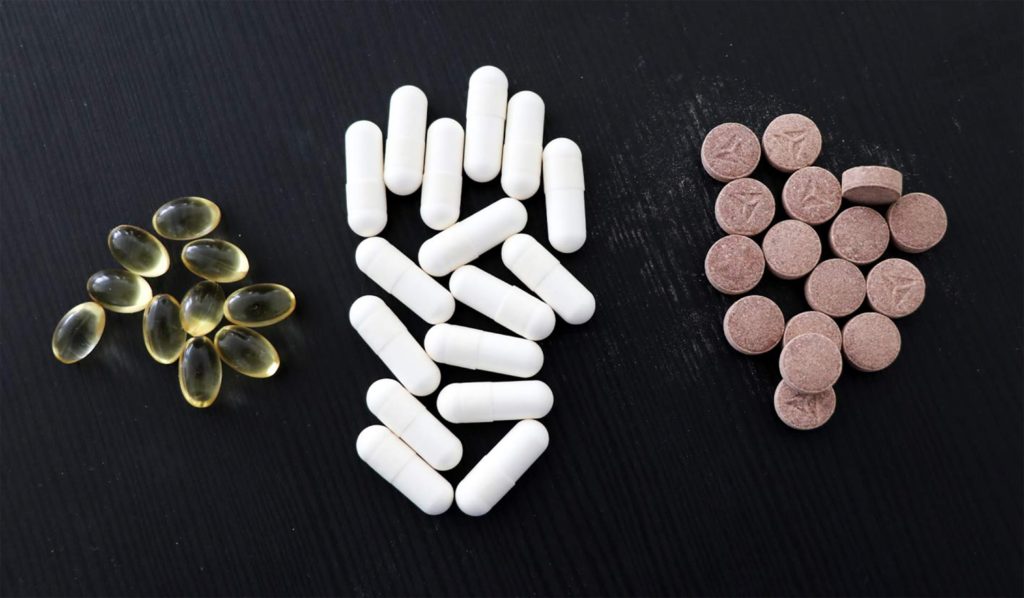Are you one of the many Americans who constantly are dealing with symptoms of indigestion? Well you are not alone, it is estimated that one out of every 28 people has some form of indigestion in the United States. Some common symptoms of indigestion are bloating, belching, gas, heart burn or burning chest pain, constipation, diarrhea, constipation, diarrhea, and a feeling that your food is just sitting in your stomach and not digesting. There are many possible medical diagnosis associated with these symptoms that sometimes require specialized testing to figure out; such as GERD, IBS, IBD, Crohn’s Disease, constipation, etc. To fully understand these diagnoses would require some heavy reading, beyond the scope of this small blog; therefore for a more in depth opinion on your personal indigestion issues, keep the food journal described below and consult with your healthcare practitioner to find out what course of action is right for you. There are however, a few common indigestion scenarios: one is that many people go through life fine and then all of a sudden one day their ability to digest a particular food changes, and secondly many people notice that they have always had symptoms immediately following eating certain foods. Quite often we do not realize that our body is responding negatively to certain food, because we are allergic to that food, sensitive to that food, or maybe our body doesn’t have the ability to properly digest that particular food for some reason or another; this is why it is important to keep a food journal, writing down not only what you eat, including all seasonings and sauces, but how you feel after, including how your bowel movements was, to look for any patterns. The first scenario is most commonly seen with dairy products. Some people can consume dairy their whole lives and then all of a sudden one day, they become what is known as lactose intolerant and can not digest dairy products. But, Why? One reason is that part of the aging process our bodies’ ability to produce digestive enzymes and stomach acid diminishes; another reason would be issues with our helpful gut microbes. If the body can no longer produce the digestive enzyme lactase, then it can no longer digest dairy products. This would result in symptoms such as diarrhea, vomiting, bloating, and gas following even a small serving of dairy.

One approach to dealing with indigestion symptoms is through medications such as antacids, anti-diarrheals, laxatives, GI stimulants, and others. We need to keep in mind that sometimes the medications are overlooking the source of the problem, and just fixing one of the symptoms causing a recurring cycle. Such can occur with suppressing the stomach acid. First off suppressing stomach acid can lead to less digestion of your food, and getting less nutritional absorption; typically anti acids are associated with poor mineral absorption, which can lead to things like muscle cramps and osteoporosis, and poor protein break down, leading to B12 deficiency, which is vitally important for building red blood cells and nervous system function including brain function. Appreciate too that our stomach acid is somewhat of a sterilizer of germs found in our food, therefore decreasing your stomach acid can also decrease the strength of your body’s immune system. Understand that our body works on a negative feed back mechanism when it comes to stomach acid; in other words, our body, when it recognizes that our stomach acid has decreased, will produce more acid. So, for example, some people take over the counter stomach acid suppressors multiple times per day. This will enable them to suppress their stomach acid, so the body produces more acid, or hypersecretion, causing the symptoms to return. Then they take more stomach acid suppressors and the cycle goes round. This makes it difficult to get off these medications. Finally, in a normal healthy digestive situation the food, saliva, stomach juices and acid, now called chyme, travel to the first part of the small intestine and the acidity is what triggers the release of bile from the gal bladder and pancreatic digestive enzymes; so by turning off stomach acid you have now negatively effected the release of other necessary digestive enzymes. So the question really is, are these people absolutely needing to reduce stomach acid or should they be looking at why do they keep getting these symptom to begin with? Possible solutions could be they are allergic to something they are eating, stress, gut dysbiosis, GI motility issues, or their body is not physically able to digest certain foods due to a lack of digestive enzymes, stomach acid, or bile.
What are the most common digestive enzymes?
Your body works hard at breaking down your meals from large food bites down to small molecules. This process requires enzymes from a few major sources: salivary glands, liver, pancreas, stomach, gall bladder, and those enzymes contained in the food you eat. Yes, the food you eat also contains enzymes that aid in your digestion, as long as the enzymes survive the cooking process. For that reason many nutritionist and diets suggest we fill our plates with raw uncooked fruits and vegetables; obviously we should be cooking our meats with few exceptions. The human body contains many digestive enzymes, but the most common digestive enzymes are: Lipases to break down fat, Amylases to break down large carbohydrate chains, Proteases and Pepsin (also known as proteolytic enzymes) to break down protein, Lactase to break down lactose or milk sugars.
Where did all the digestive enzymes go?
As stated above, some people as a result of the ageing process can not produce enough digestive enzymes, stomach acid, etc. It is further stated that by eating food cooked above the 118 degrees Fahrenheit threshold, killing the enzymes contained in the food and therefore taxing our own system to over work to break down food. If this process goes on for years, or even a life time, then it is hypothesized that our system has been exhausted and can not produce the digestive enzymes necessary for proper digestion of our food. Some people are just genetically, from birth, unable to produce what they need to digest. Stomach acid secretion decreases with age, a condition called hypochlorhydria, which in turn will have an effect on your body’s pH; which we will not get into in this blog but is important none the less. Pancreatic secretions will decrease with age and can also be made abnormal by alcohol abuse, cystic fibrosis, diabetes, gallstones, or pancreatitis. Here are a few of the many common reasons that your digestive enzymes might be depleted: a generally unbalanced diet, inadequate vitamin or mineral intake, poor eating habits like rushing through meals, not chewing thoroughly, exposure to artificial food additives/coloring/preservatives , and the aging process.

Where can you get more digestive enzymes in you diet?
A dysfunctional digestive system for what ever reason may necessitate the need for oral replacement. Digestive enzymes that may need to be replaced include proteases, lipases, lactases, and amylases. Other digestive factors that may require replenishment include hydrochloric acid and intrinsic factor, normally produced by cells in the stomach wall. But, hydrochloric acid production depends on zinc, salt, and B vitmins, and many Americans are deficient in zinc. Often times these digestive enzymes do not work alone, they need co-enzymes in order to work on your food; particularly magnesium is said to participate in 300 enzyme reactions in our body. Therefore, it is important to get a well rounded diet combined with a well rounded multivitamin and multi-mineral supplement, and then the addition of digestive enzymes. There are many digestive enzyme products available in the market place; some are designed much like a multivitamin, in that they contain a small variety of enzymes, while others are specialized for certain conditions such as being lactose intolerant. Besides supplementation and eating more raw foods, there are a few foods known for their help with digestion. Bromelain, which is derived from pineapple, breaks down a broad spectrum of proteins, and has anti-inflammatory properties. Papain is from raw papaya, and works well at breaking down small and large proteins. Licorice root has been shown to stimulate stomach mucin secretion which can help with heart burn. Bitter foods, or bitters as they are sometimes called, also can stimulate secretion of our own digestive juices and help with gastric motility; common bitters include Gentian, Ginger, Tangerine, Wormwood and Feverfew. Ox Bile is a common ingredient in supplements. Bile is manufactured in your liver, and then stored in your gall bladder until it’s ready to be injected into the intestine to aid in fat digestion. Bile contains the lipase enzymes you need to break down dietary fat. As far as safety is concerned, there are no commonly recognized negative side effects to taking digestive enzymes; but always consult with your doctor or pharmacist before combining enzymes with medications.

What can be done to help digestion?
To begin with, in other blogs I have discussed the need for good or healthy bacteria and fiber as essential for a healthy digestive system. Next step would be recognizing food allergies, and unhealthy eating habits, and eliminating the irritating or upsetting food from your diet; through the use of your food journal. Additionally as simple as it may seem, chewing your food is also essential for optimal digestion. This ensures that your saliva which is full of digestive enzymes, such as amylase which breaks down bread, potatoes, rice, and pasta, gets thoroughly mixed and in contact to the food and has a good opportunity to begin breaking it down. Also, by thoroughly chewing your food this breaks the food down into smaller particles which is a necessary step to ultimately breaking food down to its smallest elements, small molecules, which is necessary to pass through the intestine into the blood stream. Finally, chewing thoroughly sends a message priming organs such as your pancreas to prepare to secrete digestive enzymes. For this reason, it is said that chewing gum interferes with this coordinated effort, and your pancreas can get exhausted from the repeated over stimulation and over production; then it wont be able or ready for your actual meal. In addition to chewing your food thoroughly, it is recommended to avoid late meals, large meals, and drinking anything besides a small amount of water during a meal; the enzymes can become diluted with larger meals or drinks.
Enzymes, and co-enzymes, are a very important friend of ours, and without them we would surely die. As a society, we need to take some steps away from eating as a form of personal fulfillment or celebration and move towards eating as a way to nourish our body in order to perform the tasks we want.
